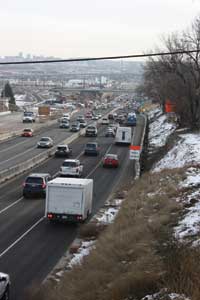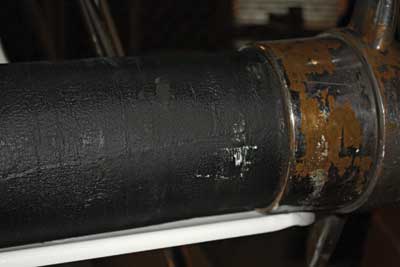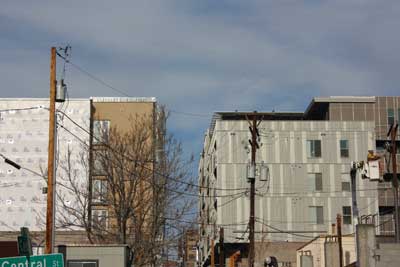By Paul Spurgeon
Congratulations! you have just been promoted to the rank of engineer. You should be proud of yourself. You have worked hard studying the books, memorizing pump charts, setting up the aerial, and pumping until your boots are filled with water, and now it has paid off. Your co-workers and friends all wish you well, and there might even be a party to celebrate. At this point, you feel like you could take on the world. But wait: Is that a gnawing feeling of anxiety in the pit of your stomach?
RELATED
Fireground Pump Operations: Mastering the Panel
Every Pump Operator’s Basic Equation
Hopefully, there is even more to learn. You are now in a position that garners respect if you handle it properly. People in the lower ranks will look to you for answers. Superiors will look to you to be the informal leader around the firehouse and department to accomplish tasks. Often, this leadership role leads to becoming a company officer.
What you do in your new position will define you not only as an engineer but also as a person. This reputation may stick with you for the rest of your career. So what can you do to be the best possible engineer you can be? It’s more than showing up at the firehouse and handling emergency calls. Here are some suggestions based on my observations of how people have handled the promotion properly and how others have crashed and burned.
Own Your Apparatus
You need to treat your rig as if it were your own personal piece of equipment. Treat it like your baby. Get to know every inch and every part and how everything works. If you know how everything normally looks, sounds, and acts, then it is easier to know when something is wrong. Go out and run the apparatus through its paces.
Pumps. Make sure the pump can do everything you want or need it to do. What is it capable and not capable of producing? Can it draft with the current equipment? Is the equipment in proper condition (photo 1)? Can you depend on it to produce pressures high enough to handle any high-rise building in your district? Can you look at the revolutions per minute (rpm) gauge and roughly translate that into a pressure [pounds per square inch (psi)] on a hoseline? For example, 1,100 rpm equals 150 psi when the pump is in pressure mode. Does every knob, lever, and gauge work properly even under pressure? If not, get it fixed. The discharge valves work smoothly when there is not a lot of pressure behind them, but do they work as easily at 250 psi?
 |
| (2) Roads with heavy traffic, including construction areas, may not be your best route. |
Aerials. If you are assigned to a truck, how fast can you realistically extend the aerial to its full working height? Can you short-jack it safely? What is the most efficient way to do this? Learn the load limits and best angles for the aerial. What happens when you apply a master stream?
Tools. Know where every piece of equipment is located and what kind of condition it is in. Start every power tool at the beginning of the shift, and inspect all equipment to make sure it will work when it is needed most.
Inspect Your Apparatus
Complete a rig inspection every day. If you skip the inspection, little problems that can be fixed easily turn into big problems that your mechanics like to yell about. A good way to inspect the apparatus is to wash it. As you are scrubbing the road grime off, little imperfections will appear. Knowing your apparatus takes just a few minutes at the beginning of the shift, but it means you are doing your job the way it needs to be done.
Know Your District
Get out and study the area you will be responsible for. Your crew and the other engineers in the firehouse will be great resources. The other engineers have probably been at your firehouse awhile-use their knowledge. The officer and firefighters (especially the senior firefighters) will know the area better than you at first. Realize this, and use this valuable resource.
Usually, the best way to get to a call is the most direct route with the fewest turns, but this is not always the case. Some streets are narrow or congested, and it may be best if you avoid them. Find out where there are bad bumps or dips in the road. If you damage the apparatus, there could be financial consequences or, worse, you could hurt one of your crew members. There is so much more to the job than just knowing the most efficient way to get to a call. A good engineer needs to know traffic patterns and routes based on the time of day (photo 2).
 |
| (1) Would you use this suction hose? (Photos by author.) |
Know where the railroad crossings and school zones are and all the related policies for crossing them. Are you allowed to maneuver through railroad crossing gates or pass a school bus with flashing lights? My guess is no.
Blind corners are a huge problem. Some intersections are wide open where you can see all around and others can see you; others are just dangerous. When buildings are built close to the street, it is impossible to see down any side streets. If you know where these areas are, then you will know that extra caution, such as a slower speed than normal, is necessary.
Know the buildings in your district. If you are assigned to an engine, learn where the hydrants are. Sometimes it is easier to learn where the hydrants are not located. Learn where the fire department connection (FDC) is on the commercial buildings, and know your department’s procedures for connecting to it. Some departments have the first engine spot directly at the FDC, but others expect the second-due engine to connect to it. Know what is expected of you.
A truck engineer needs to know where to spot the apparatus to keep his crew safe while still getting the job done. Knowing where you need to avoid overhead power lines might mean parking on a different side of the building (photo 3). It is crucial to learn where streets are narrow and short-jacking is necessary. Trucks are longer than engines and so need more space to turn. Following the engine could get you in trouble. This goes hand-in-hand with knowing your apparatus.
 |
| (3) Know where power lines will interfere with aerial placement. |
I worked with one of my idols early in my career, the first engineer I worked with after probation. After more than 20 years on the job, he would drive through a different part of the district nearly every morning on his way to the firehouse just to keep up-to-date with any changes. He could always tell us about any new buildings or if there was any street maintenance to worry about. He never stopped learning.
Know Everyone’s Job
You do not have to be an expert at every little detail of every apparatus riding position, but you should know what all crew members are doing at various emergency scenes. As the engineer, you are often outside and away from any immediate danger. This allows you to look at the big picture and see issues before they become large problems. You can anticipate what is needed next to support the crew. You can pull and ready backup hoselines and bring out extra air bottles before your crew comes out for a change. Being the one with which the crew exchanges air bottles allows you the distinct opportunity to look them in the eye and evaluate whether they should be allowed to go back in or should take a break. You are the built-in safety officer. Knowing what your crew is doing at nonfire-related scenes allows you to be able to support them in any way they need. You can bring tools and equipment to a crew member who is working hard at an auto accident, for example. Knowing the strengths and weaknesses of the individual parts will make the whole team stronger.
Lead at the Firehouse
Whether you are next in line for promotion because of seniority and can remain at your current firehouse or you get promoted and move into a new firehouse, your personal conduct is one of the most important influences on your career. Even if you earned a perfect score on the exam, you do not know everything. There is a good chance one or all of the firefighters riding behind you know the area and apparatus better than you do. Respect your new coworkers and understand that you are still the new kid on the block. You still have a lot to learn.
Treat your crew as you want to be treated, or even better-it’s the first step to being an effective leader. Often, the engineer naturally becomes the informal leader of the team; this comes from your time and experience on the job. What you do with this natural progression will go a long way toward building your reputation and determine whether your crew will look up to you. If you walk in and act like a know-it-all, the respect will be lost and possibly never regained. Be patient and pay attention. If there is already an informal leader of the group, let that person continue to lead. If you challenge this entrenched person, you will lose. Handle things right, and your standing in the group will rise. If you work hard at your job and treat people with respect, they will respect you. One thing you can do is constantly find things that the crew does well and praise them for it, but be genuine. They will see right through you if you aren’t. Always be honest.
Next, if something good happens, the entire crew needs to get the accolades. For example, at a fire, if the chief praises you for quickly pulling a backup line, tell him it is what the crew has trained on, and leave it at that. If one person does something good and the crew gets credit for it, make sure that person receives credit. Even if this person is modest and doesn’t want the attention, make sure you tell him privately that he is the reason for the crew getting praise. Another way to praise a member is to point out his good traits to others. For example, when you introduce Firefighter Bill to someone, introduce him as “Firefigher Bill, the guy we go to when we need outstanding ventilation work done.” Many times, we are not so nice about it. I have seen where we will talk about a call and someone will say something like, “Captain America here made that extrication look simple. I don’t know why we were even there.” It might embarrass him in the short term, but it will build his self-esteem for the long haul.
Just as we win as a team, we also lose as a team. If something goes wrong and the crew is standing in front of the chief, don’t point fingers. Simply apologize and tell the chief, “We will make it right” or “We will do it right next time.”
I should back up here and make something clear. First, the officer is the formal leader of the group. Plain and simple. The formal leader is the one who gives orders and expects the crew to follow. This person has been promoted to the position, and you should give him respect. Even if the person has lost your trust, the position will always garner respect. If you have gained a good standing with the crew, you might, in the right circumstances, be able to pull the officer aside and talk about his shortcomings.
Next, the informal leader is the person the crew looks up to and respects. For whatever reason, this honor often falls to the engineer. It may be because it’s a promoted position or it may be just tradition. Regardless, the informal leader can either make or break a good crew. With subtle guidance, the informal leader can prompt members to perform better or can keep them from making mistakes. If a new member is lacking any skills, you can help train him or, even better, you can direct that person to an expert on that skill. By pointing out the good things the crew members do, they will want to continue doing them.
A good informal leader is a useful tool for a good officer. With mutual respect, if something around the firehouse needs to be accomplished and it does not require a direct order, the officer should simply give the task to the informal leader. That person will make sure the job gets done, which takes some of the load off of the officer and empowers the informal leader. In turn, the informal leader should empower the crew and get the job done as a team.
For example, the officer turns to the engineer and says, “Hey, I just ordered a new dishwasher. Can you guys get it installed today?” As the informal leader, you simply turn to the crew and say, “The captain needs us to install a new dishwasher today. Bob, if Sue and I lift it into place, can you work your plumbing magic and get it hooked up?” It’s that simple. You are right there working alongside the others and subtly praising another crew member to make him feel wanted.
Leadership, whether formal or informal, can’t be forced. If you are smart and patient in the beginning, there is a good chance it will come with time. The team will let you know when it has happened.
Being a new engineer is hard work. Too often we see arrogant new engineers walk into a new firehouse and think they are there to “run the show.” This is so far from the truth. Without your crew, you are nothing. With smaller-sized crews these days, it is even more important to work as a team. Walking in like the big man on campus will only cause resentment and hostility, and it will be hard to accomplish anything. Do your job properly, put your crew first, and the respect you earn will pay dividends later for everyone.
Whether you plan on finishing your career as an engineer or continue to move up the ranks, the way you handle the position of engineer will go a long way toward making you the best at any position. Being excellent at driving, pumping, and aerial operations is not enough. Being a complete engineer by “doing things right” will allow you to gain the respect and esteem of those around you.
Paul Spurgeon is a 23-year veteran of the Denver (CO) Fire Department. Promoted to engineer in 1998, he was assigned to Engine 7 in northwest Denver. He has an AAS degree in fire science and technology from Red Rocks Community College. He has authored Fire Service Hydraulics and Pump Operations (Fire Engineering, 2012).
Additional Links
The Qualities of an Effective Engineer -Driver
More Fire Engineering Issue Articles
Fire Engineering Archives

